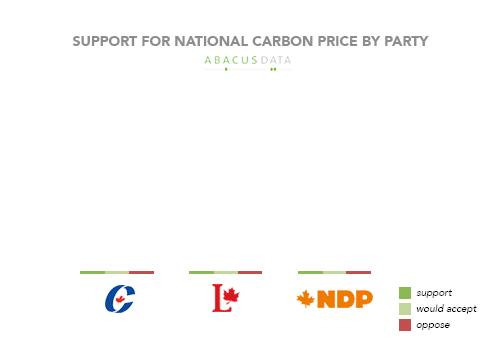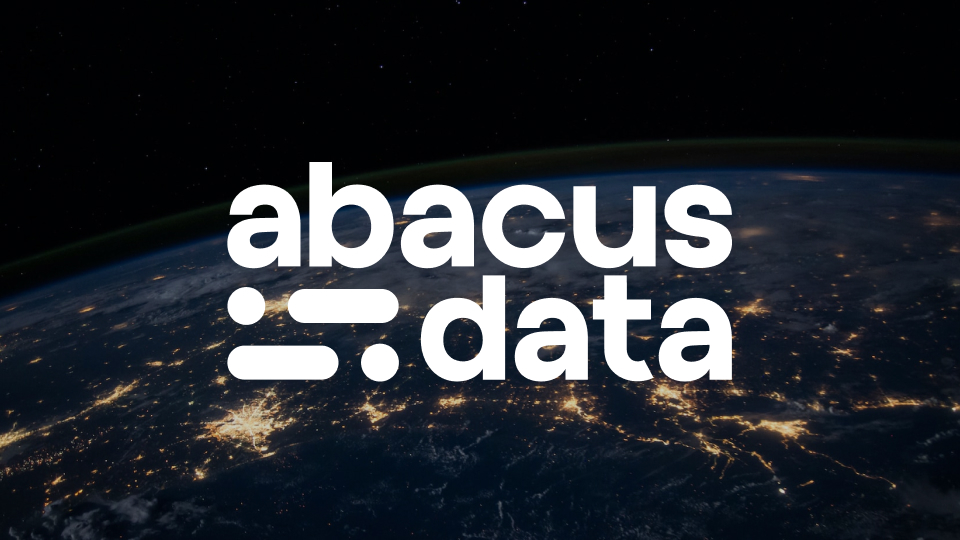WHO’S AFRAID OF A CARBON TAX? NOT SO MANY.
September 19, 2016

In our latest survey of national opinion, we explored questions around using a price or tax on carbon to help combat the challenge of climate change. Here’s what we found:
• Few people generally ask for taxes of any sort, and so it was perhaps not surprising that only 25% across the country “favour” a carbon price or tax. What was more interesting to us is the fact that not very many oppose the idea (31%). The plurality say can accept the taxation of carbon emissions.
• Liberal and NDP supporters see this more or less the same way (77% to 79% support or accept), while 62% of Conservative voters are opposed to the idea. Younger people are more supportive, but the majority of those over 45 also say they support or can accept it.

• Majorities in every region of the country support or accept the idea, although Alberta is essentially equally divided when a margin of error is considered.
• A major reason why opposition to a carbon tax is modest lies in the fact that most people don’t think it will be harmful to the national economy or the economy of their province. The exception again is Alberta, where 54% anticipate carbon taxes will weaken the national economy and 60% say that will happen to their provincial economy.
• Across the country, 20% say carbon taxation will end up strengthening the economy, 26% weakening, and 49% it would have no real impact.
THE UPSHOT
Bruce Anderson: “For several years, the idea of a carbon tax has been a political football. Advocates say it is essential while critics have labelled it a job-killing tax on everything.
As the country prepares to move ahead with a national carbon pricing policy, it’s useful to look at the net effect of this political debate so far. Because people rarely avoid the opportunity to oppose a new tax, it’s hard not to notice that only 31% oppose this particular idea.
Some believe that taxation will be an important behavioural nudge on an issue that is important to them. But more of the acquiescence that it evident in this poll has to do with a lack of fear of the consequences: most simply don’t buy that a carbon price need wreak havoc on the economy.
There is a different calculation in Alberta, and among Conservative voters. However even within those two subgroups of the population, sizeable minorities are willing to accept or support the idea of using carbon pricing to encourage a shift in behaviour.
There will be challenging parts of this debate ahead for the government – including the price point, the relationship with the provinces, and any adjustments for energy-intense, trade-exposed industries – but our polling in overall terms suggests latitude for the federal government to move in this direction.”
METHODOLOGY
Our survey was conducted online with 2,010 Canadians aged 18 and over from August 22 to 25, 2016. A random sample of panelists was invited to complete the survey from a large representative panel of over 500,000 Canadians.
The Marketing Research and Intelligence Association policy limits statements about margins of sampling error for most online surveys. The margin of error for a comparable probability-based random sample of 2,010 is +/- 2.2%, 19 times out of 20.
The data were weighted according to census data to ensure that the sample matched Canada’s population according to age, gender, educational attainment, and region. Totals may not add up to 100 due to rounding.
ABACUS DATA INC.
We offer global research capacity with a strong focus on customer service, attention to detail and value-added insight. Our team combines the experience of our Chairman Bruce Anderson, one of Canada’s leading research executives for two decades, with the energy, creativity and research expertise of CEO David Coletto, Ph.D.




